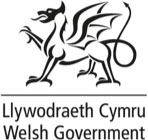
Building a fairer financial services sector with co-operative models
In a recent meeting of the Senedd Cross-Party Group (CPG) for Co-operatives and Mutuals, chaired by Luke Fletcher MS, the group heard some of the latest research on the financial services sector in Wales and discussed the key role of the credit union model in Welsh communities.
The Rise of Money Management Apps: Benefits and Risks
Steffan Evans from the Bevan Foundation shared the findings of a report on the growing use of money management apps in Wales, particularly among those on low incomes. As fewer people rely on cash in everyday transactions, digital tools for managing money are becoming more prevalent. While these apps offer features like automated savings and categorisation of expenses, they are not without risks. For some, they simplify savings and budgeting, making it easier to stay on top of personal finances. However, for others, especially those with negative budgets or in financial difficulty, these apps could exacerbate financial stress.
What’s critical is ensuring that these tools are designed with the people who need them most in mind. Co-operative and mutual models, built on principles of community, transparency, and shared ownership, have the potential to mitigate some of the risks associated with this trend. They could offer more tailored, people-focused solutions to digital money management, ensuring that the services provided genuinely benefit users without leaving anyone behind.
The full report from the Bevan Foundation can be read here.
Credit Unions in Wales: A Model for Financial Inclusion
Mark White, Chief Executive of Smart Money Cymru, followed up with an exploration of how credit unions embody co-operative principles in action. Unlike traditional financial institutions, credit unions are owned by their members and exist to serve their communities, not to generate profit for shareholders. They encourage savings and provide loans, with the capital coming directly from members’ contributions. Crucially, they offer financial services to those who are often excluded by mainstream banks.
However, despite their benefits, the credit union sector in Wales is significantly smaller than in other parts of the UK. Wales has just 13 credit unions, compared to 81 in Scotland and 138 in Northern Ireland. This smaller scale limits the overall impact credit unions can have.
Yet, as Mark pointed out, credit unions are uniquely positioned to support financially vulnerable individuals. By providing financial education, promoting savings, and helping people build a track record of affordability, credit unions offer a lifeline to many who might otherwise fall prey to high-interest loans or other financial traps. Mark also shared inspiring case studies, demonstrating how individuals in Wales have had their lives transformed by credit union support.
The Way Forward: Co-operative Models for a Fairer Future
The meeting ended with a discussion of how co-operative and mutual models can shape the future of financial services in Wales and provide money management support in a co-operative way. There was particular interest in the ongoing Law Commission consultation on reform of the Co-operative and Community Benefit Societies Act 2014. This review could pave the way for a stronger legal framework, helping co-operatives and community benefit societies to thrive.
As the meeting highlighted, co-operative and mutual models offer a powerful alternative to traditional financial services, especially for those who are underserved by mainstream institutions. By focusing on community ownership, mutual support, and fairness, these models have the potential to build a more inclusive and equitable financial system in Wales.
Whether through money management apps designed with wellbeing in mind or credit unions offering affordable financial services, the co-operative approach can create a financial services sector that truly works for everyone. With ongoing discussions around legislation and a growing recognition of the importance of mutual values, the future of financial services in Wales could be fairer, more inclusive, and more community-driven than ever before.









